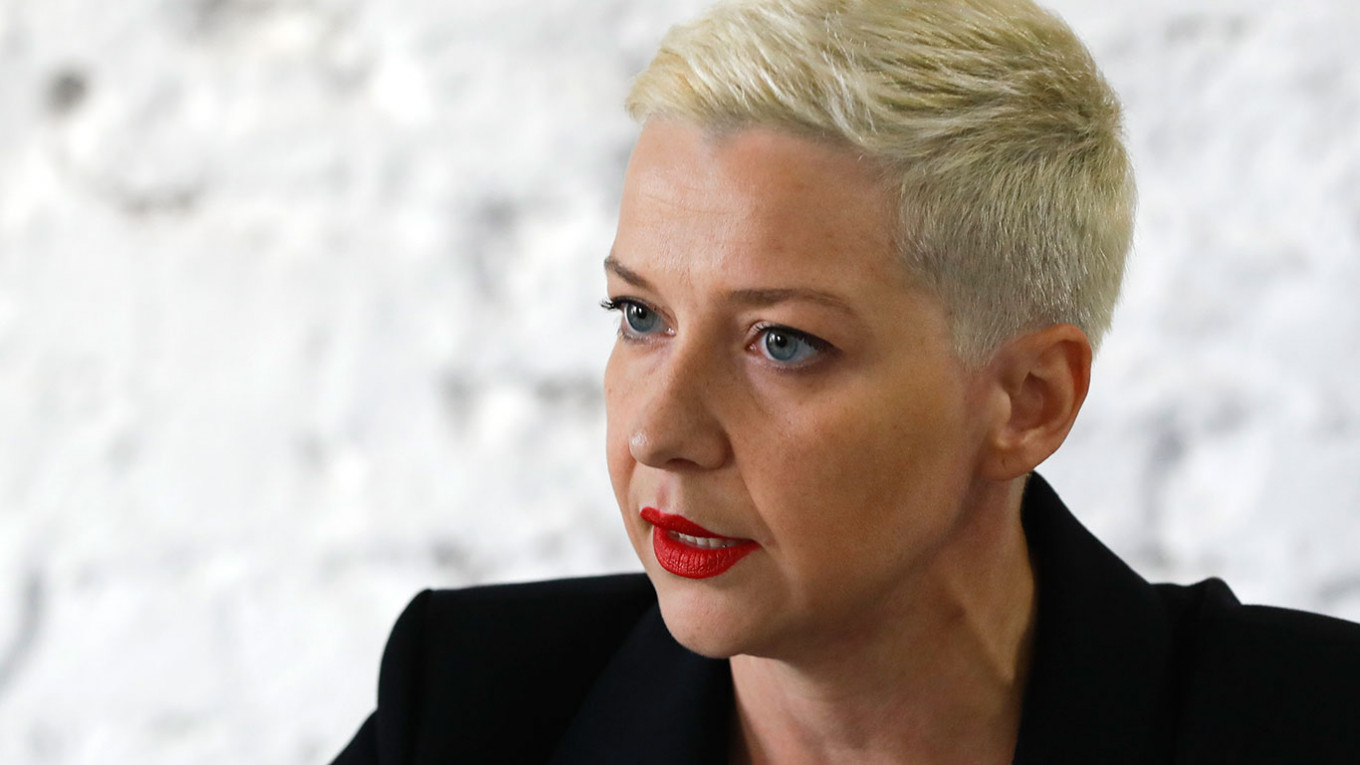Maria Kolesnikova, the last remaining protest leader still in Belarus, went on trial on Wednesday after 10 months in custody as the regime of Alexander Lukashenko seeks to crush all dissent.
In power since 1994, Lukashenko has been cracking down on opponents since unprecedented protests erupted after last year's elections, deemed unfair by the West.
The start of the high-profile trial comes as critics accuse the Belarusian regime of killing a dissident in neighboring Ukraine and trying to forcibly bring an Olympic athlete home from Tokyo.
Kolesnikova, a 39-year-old former flute player in the country's philharmonic orchestra, has become a symbol of the protest movement in Belarus.
Together with opposition leader Svetlana Tikhanovskaya and another campaign partner, Veronika Tsepkalo, Kolesnikova led last summer's rallies against Lukashenko.
Kolesnikova, who had said she would not leave Belarus voluntarily, was arrested last September as she tore up her passport to resist deportation to Ukraine.
On Wednesday, Kolesnikova and her lawyer Maxim Znak appeared at a closed court in the Belarusian capital.
The pair are accused of undermining national security, conspiring to seize power and creating an extremist group.
They face up to 12 years in prison if convicted.
Dancing in court
In a video from inside the court, Kolesnikova — wearing a black dress and her signature red lipstick — was seen dancing and smiling next to Znak inside the defendant cage.
She also made a heart-shaped symbol with her hands, which she often did at protest rallies.
In a written interview with the Russian Dozhd TV channel published Wednesday, she said the regime feared opening the trial because "everyone would see that the real danger and threat to Belarusian national security are the authorities themselves."
Kolesnikova is the only protest leader still in Belarus.
Tikhanovskaya, who stood for president in place of her jailed husband, was forced out of the country and granted refuge in EU member Lithuania. Tsepkalo also left Belarus.
Together the three women inspired a wave of female protests in the country condemned by Amnesty International for its treatment of women activists.
"We miss Masha and Maksim so much!" Tikhanovskaya said on her Twitter on Wednesday, using their diminutives.
"Soon they will be home, like all those imprisoned on political grounds."
When Kolesnikova was arrested last September, members of the KGB security service put a sack over her head, pushed her into a minibus and drove her to the Ukraine border, she said.
She jumped out of a car window and tore up her passport, refusing to leave the country.
In the Dozhd interview, she said she did not regret the move, saying it showed "that the rumours about the all-powerful KGB are completely exaggerated."
Neighboring Ukraine said it would provide extra protection to the growing number of Belarusian exiles in the country after an activist was found hanged in a Kiev park this week.
Kolesnikova and Znak had previously worked for presidential hopeful Viktor Babaryko, who was sentenced to 14 years in prison on fraud charges last month.
They were both part of a seven-member Coordination Council, set up in response to the disputed August election to oversee the peaceful transition of power, that also included Nobel Prize-winning writer Svetlana Alexievich.
The opposition believes Tikhanovskaya was the real winner in the August vote.
She has urged the West to toughen sanctions against Lukashenko's regime, and met with U.S. President Joe Biden last week and British Prime Minister Boris Johnson on Tuesday.
The UN's human rights spokeswoman Marta Hurtado has said that the situation in Belarus "is clearly deteriorating."
Belarusian activist Vitaly Shishov was found hanged in a park in the Ukrainian capital Kiev on Tuesday, with supporters accusing the regime of killing him.
Belarusian sprinter Krystsina Tsimanouskaya said her team tried to forcibly send her back to the authoritarian country from the Tokyo Olympics on political orders.
On Wednesday, she flew out of Japan and was due to stopover in Vienna en route to refuge in Poland.
A Message from The Moscow Times:
Dear readers,
We are facing unprecedented challenges. Russia's Prosecutor General's Office has designated The Moscow Times as an "undesirable" organization, criminalizing our work and putting our staff at risk of prosecution. This follows our earlier unjust labeling as a "foreign agent."
These actions are direct attempts to silence independent journalism in Russia. The authorities claim our work "discredits the decisions of the Russian leadership." We see things differently: we strive to provide accurate, unbiased reporting on Russia.
We, the journalists of The Moscow Times, refuse to be silenced. But to continue our work, we need your help.
Your support, no matter how small, makes a world of difference. If you can, please support us monthly starting from just $2. It's quick to set up, and every contribution makes a significant impact.
By supporting The Moscow Times, you're defending open, independent journalism in the face of repression. Thank you for standing with us.
Remind me later.






